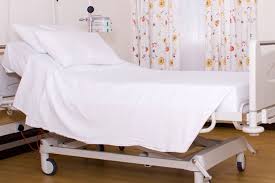In the realm of healthcare, where hygiene and efficiency are paramount, innovations are constantly being introduced to improve patient care. One such advancement that has gained traction in recent years is the use of disposable hospital pillows. Though seemingly simple, these pillows have significant implications for hospital operations, patient comfort, and overall hygiene standards. This article explores the benefits, challenges, and future prospects of disposable hospital pillows.
Understanding Disposable Hospital Pillows
Disposable hospital pillows are single-use products designed to provide comfort and support to patients during their hospital stay. Unlike traditional pillows, which are typically encased in fabric and require laundering, disposable pillows are constructed from materials such as foam or synthetic fibers that are intended to be discarded after a single use. This approach aims to eliminate the need for extensive laundering processes, thereby reducing the risk of cross-contamination and enhancing overall infection control.
Benefits of Disposable Hospital Pillows
Enhanced Hygiene and Infection Control
One of the most compelling advantages of disposable hospital pillows is their contribution to improved hygiene. In a healthcare setting, where the risk of infection is always a concern, disposable pillows offer a significant benefit by minimizing the potential for cross-contamination. Traditional pillows, with their fabric covers, can harbor bacteria, viruses, and other pathogens even after laundering. Disposable pillows, being single-use, ensure that each patient receives a clean, uncontaminated pillow, thus reducing the risk of hospital-acquired infections.
Operational Efficiency
The use of disposable pillows also streamlines hospital operations. Traditional pillow laundering involves labor-intensive processes, including washing, drying, and storing, which can be resource-intensive and time-consuming. By contrast, disposable pillows eliminate these steps, freeing up hospital staff from the routine task of pillow management. This efficiency allows hospitals to allocate resources and personnel to more critical aspects of patient care.
Cost-Effectiveness
While the initial cost of disposable pillows may be higher than that of traditional pillows, the overall cost-effectiveness can be substantial. Hospitals save on the costs associated with laundering, such as water, energy, and detergent. Additionally, the reduction in labor costs and the potential decrease in infection-related expenses contribute to the economic viability of disposable pillows.
Patient Comfort
Disposable hospital pillows are designed with patient comfort in mind. Many are made from soft, high-quality materials that provide adequate support and cushioning. Modern disposable pillows are engineered to mimic the comfort of traditional pillows while offering the added benefit of hygiene. This combination enhances the overall patient experience, promoting rest and recovery during their hospital stay.
Challenges and Considerations
Despite their benefits, disposable hospital pillows are not without challenges. Some of the primary concerns include:
Environmental Impact
The environmental impact of disposable products is a significant consideration. Disposable hospital pillows contribute to the growing issue of medical waste, which can strain landfill capacities and increase environmental pollution. To address this concern, many manufacturers are exploring eco-friendly materials and recycling options. Innovations in biodegradable or recyclable pillow materials are promising, but widespread adoption and effective waste management practices are crucial for mitigating environmental impacts.
Cost and Budget Constraints
While disposable pillows can lead to cost savings in some areas, the initial investment can be substantial. Hospitals with tight budgets may find the upfront costs challenging. To balance cost and benefit, it is essential for healthcare facilities to evaluate their specific needs, patient volume, and operational efficiency before committing to disposable pillows.
Quality and Comfort Variability
Not all disposable pillows are created equal. The quality and comfort of disposable pillows can vary depending on the manufacturer and material used. It is crucial for healthcare providers to select high-quality products that meet patient comfort and support standards. Regular assessment and feedback from patients can help ensure that the chosen disposable pillows align with comfort and performance expectations.
Future Prospects
The future of disposable hospital pillows holds promising developments as technology and sustainability efforts advance. Some potential directions include:
Eco-Friendly Innovations
The push towards environmental sustainability is likely to drive innovation in disposable pillow materials. Manufacturers are exploring options such as biodegradable materials, recycled fibers, and eco-friendly production processes. As these technologies mature, they have the potential to reduce the environmental footprint of disposable hospital pillows significantly.
Smart Pillow Technologies
Emerging technologies may lead to the development of smart disposable pillows that integrate features such as pressure relief, temperature control, or monitoring capabilities. These advancements could further enhance patient comfort and contribute to better healthcare outcomes.
Customization and Personalization
Advances in materials science may allow for greater customization of disposable pillows. Customizable pillows that cater to individual patient needs, such as specific support levels or shapes, could improve patient satisfaction and comfort.
Conclusion
Disposable hospital pillows represent a significant advancement in the quest for improved hygiene, efficiency, and patient comfort in healthcare settings. While they offer clear benefits, including enhanced infection control, operational efficiency, and cost-effectiveness, challenges such as environmental impact and quality variability must be addressed. As the healthcare industry continues to evolve, the future of Direct Textile Store will likely be shaped by ongoing innovations in sustainability, technology, and patient care. By carefully considering these factors, healthcare facilities can make informed decisions that balance the advantages of disposable pillows with the broader goals of environmental responsibility and optimal patient care.


